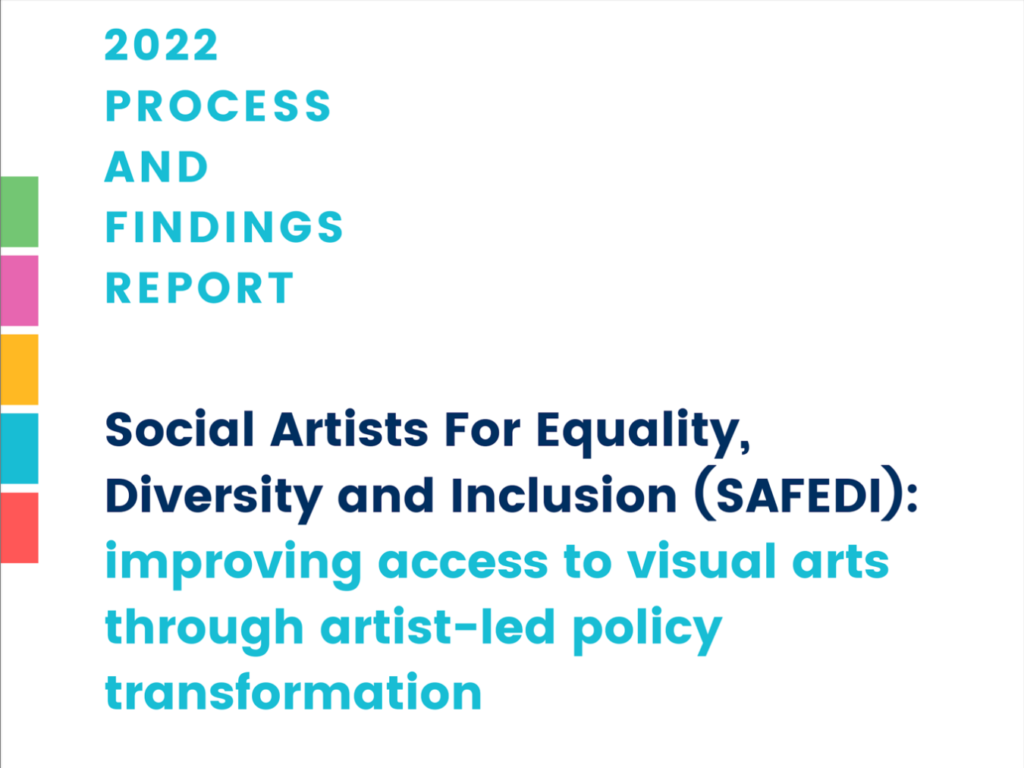Manchester Metropolitan University (MMU), Axisweb (Axis) and Social Art Network (SAN) partnered to deliver 6 social art commissions in 2021 through an AHRC fellowship that aims to create a new model of creative collective policymaking with social practice artists, marginalised audiences, policymakers & institutions. Together aimed to deliver innovative policy change through a social art to help communities affected by exclusion. Our shared ambition is to position social practice as the leading champion of EDI in the visual arts
The six commissioned artists developed live art projects engaging participants from under-represented communities to explore what prevents them from accessing the cultural sector. The creative outcomes from these projects were supported by MMU researchers to help collaborating policymakers’ draft new EDI policies that can be tested in practice.
This initiative was especially urgent given the current civil rights movement which has prompted UK cultural organisations to review their collections and policies to determine how these reflect historical issues around colonisation and racism. At the same time, due to the covid-19 emergency, large arts organisations are seeking to recover audiences through participatory practice but without a set of guidance and criteria on ethics and safeguarding.
We aimed to respond to the urgency of these issues, bridging between innovative social art EDI practices that are currently unacknowledged, and mainstream visual art organisations requiring guidance, benefitting both sectors, while amplifying the community voice the cultural sector is required to serve.

